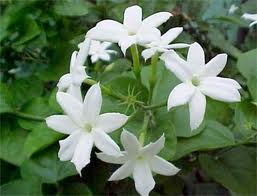When anonymous calls for a Chinese ‘Jasmine Revolution’ began circulating on the internet, the Chinese characters for jasmine have been intermittently blocked in text messages.
Chinese communist leadership labels jasmine as a subversive flower. Fearful of jasmine’s destabilizing potency, canceled this summer’s China International Jasmine Cultural Festival.
Since Tunisian revolutionaries this year anointed their successful revolt against the country’s dictatorial president the ‘Jasmine Revolution,’ this flowering cousin of the olive tree has been labeled an outrageous change agent by the irresponsible men who keep the Chinese Communist Party in power.
Much like the initial calls on the Internet for protesters to “stroll silently holding a jasmine flower,” the floral ban is shrouded in some mystery. The Beijing Public Security Bureau declined to answer questions about jasmine.
But a number of cut flower and live plant business owners said they had been visited by the police in early March or given directives indicating that it had become contraband.
Several of those who run stalls in one large plant outlet, the Sunhe Beidong flower market, said the local police had called the vendors to a meeting and forced them to sign pledges not to carry jasmine; one said she had been instructed to report to the authorities those even seeking to purchase jasmine and jot down their license plate numbers.
The people who grow jasmine in Daxing, a district on the rural border of the capital, say prices have collapsed since March, when the police issued an open ended jasmine ban at a number of retail and wholesale flower market around Beijing.
Although some vendors were given vague explanations for the jasmine freeze, that the plant was ‘symbolic’ of those people who wanted to sow rebellion, most the people involved in the flower trade have been largely left in the dark about why they should behave with such vigilance, and some professed ignorance of the ban altogether.
Thanks to a censored Internet, most Chinese have never heard of the protest calls in China, nor are they aware of the ensuing crackdown.
As is often the case in China, controls have a tendency to wilt in the face of mercantile pressures. After two months with little sign of jasmine at the markets, a few van loads of the plants began to show up at wholesale centers in early May.They were priced so low that the buyers could not resist.
